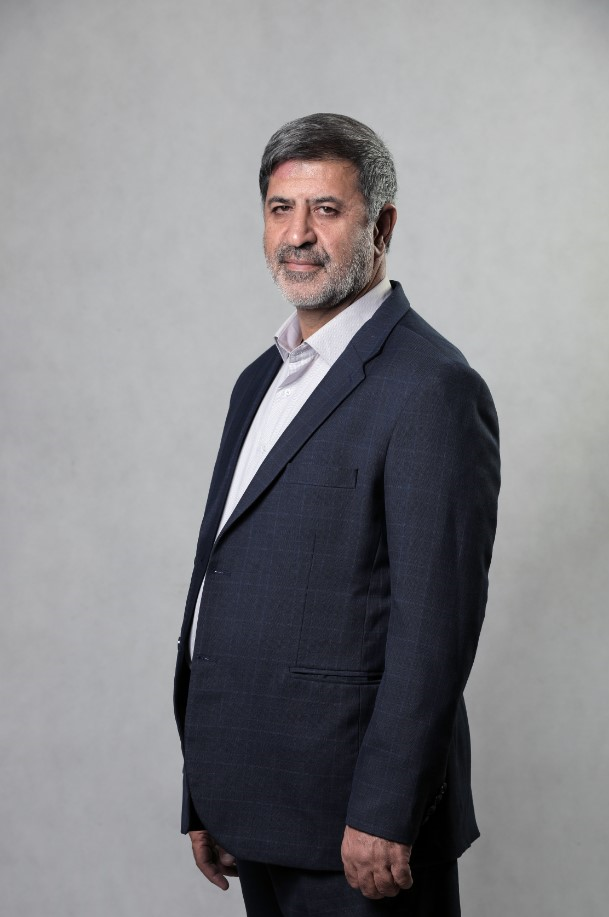under the excuse of Asghar Bakhtiari’s lack of knowledge in Cinemaheqrit; Avini’s close friend according to his own account
Fars News Agency – Cinema Group: Asghar Bakhtiari was the production manager of “Ravait Fateh” group, who after the martyrdom of Seyed Morteza Avini stepped into the field of documentary production, and in his words and comments, he remembers Martyr Avini more than anything else.
The way that started with Avini
Regarding accompanying the Fatah narrative documentary team with Martyr Avini, he said that “it was after the end of the war that I was in the operational areas with Martyr Avini’s team to prepare the documentary. In fact, this chapter of Martyr Avini’s activities began with the establishment of the Fath narrative cultural and artistic institute. An institution that was established in the summer of 1371 by the order of Hazrat Agha. In the beginning, there were a few of us who started working with Martyr Avini. Mr. Homayounfar, Ramezani, Shabani, Abbasi, Farsi, Ranjbar and Bande, there were about 7 or 8 of us, and I and Mr. Shabani, Ramezani, Abbasi and Homayounfar came from TV Jihad. Mr. Farsi was added later and Mr. Yusuf Saberi joined our team as an assistant director after “Shahri Dar Asman”.
Bakhtiari was born in 1345 in the city of Ray and has a bachelor’s degree from Imam Hossein (AS) University. He took himself to the front since he was a teenager and went to television in 1366 to portray the bravery of warriors. In 1366, Bakhtiari met Martyr Avini in the television group Naradi Fatah in Jihad TV and started making documentaries due to his interest in cultural activities. Until 1372 and the martyrdom of Morteza Avini, he was in his group as a production manager, photographer and behind-the-scenes cameraman, and after that, he himself entered the field of documentary filmmaking in the following years.
Entering the documentary with a sacred purpose
He explains the reason for his entry into the field of documentaries and says: “It was in 1366 that I met Martyr Avini in the television group of Fatah Narration in Jihad TV. We came from the front and were interested in cultural activities. I entered television as a combatant. “Jihad TV group included Sepahi, Basij and Jihadi children, and a team was formed to make a documentary.”
He added: “First, let me mention the story of my appearance on TV, which is a long story, but in short, it goes back to the testimony of my close friend Gholamreza Rahimi, who was on the front and was accepted into the doctoral program. When an amateur film was made of his burial ceremony, I thought that it would be good if we could do a better job for the warriors and martyrs. My special interest in this martyr created a spark in my mind to enter this field.”
After the war and moving on
In the years after Avini’s martyrdom, Asghar Bakhtiari also experienced management fields and was the director of Avini Institute, but he can be better known for his most important documentaries. Bakhtiari documentaries “Rouzeh Rizvan” about the mothers of the martyrs, “Hidden pains” about the veterans of Saadat Abad hospital, “Waiting” about the mothers of the martyrs who have not returned so far, “Mother”, “Agha Majid”, “Awake”, “Baleh Noor”, It has “Amdadgaran”, “Soliman 31”, “Plate No. 566” and “A margin on an old text” in its repertoire.

Asghar Bakhtiari received the International Martyr Avini Award for the short documentary “Nashani” at the 9th edition of the International Iranian Documentary Film Festival, Cinemaheqirt. The documentary “Nashani” tells the story of the letters remaining from the Holy Defense period arriving in the hands of their owners. The story is that a number of letters and wills were written by the warriors during the years of holy defense and sent by them to their families, and now the same old letters have been found and are reaching their hands. Bakhtiari in the short and concise “Address” goes very quickly and frankly to the men who are now busy with normal life and face a great transformation when faced with what they have written.
Asghar Bakhtiari has made more than 100 documentaries, most of them in the field of war and holy defense. Dealing with the patience and sufferings of martyrs’ mothers, martyrs’ families and the lives of veterans are among the topics he focuses on in his documentaries. The documentary, which continued the path he had started with Avini, tried to show the war from the perspective of its sufferings, and this was the way that made him one of the prominent figures of the holy defense documentary cinema..
The 17th International Documentary Film Festival of Iran, Cinema Hekhrit, will be held from December 27 to January 2, 1402, while the commemoration of Asghar Bakhtiari is one of the parts of this period of the festival.
end of message/
You can edit this article
Suggest this article for the first page

